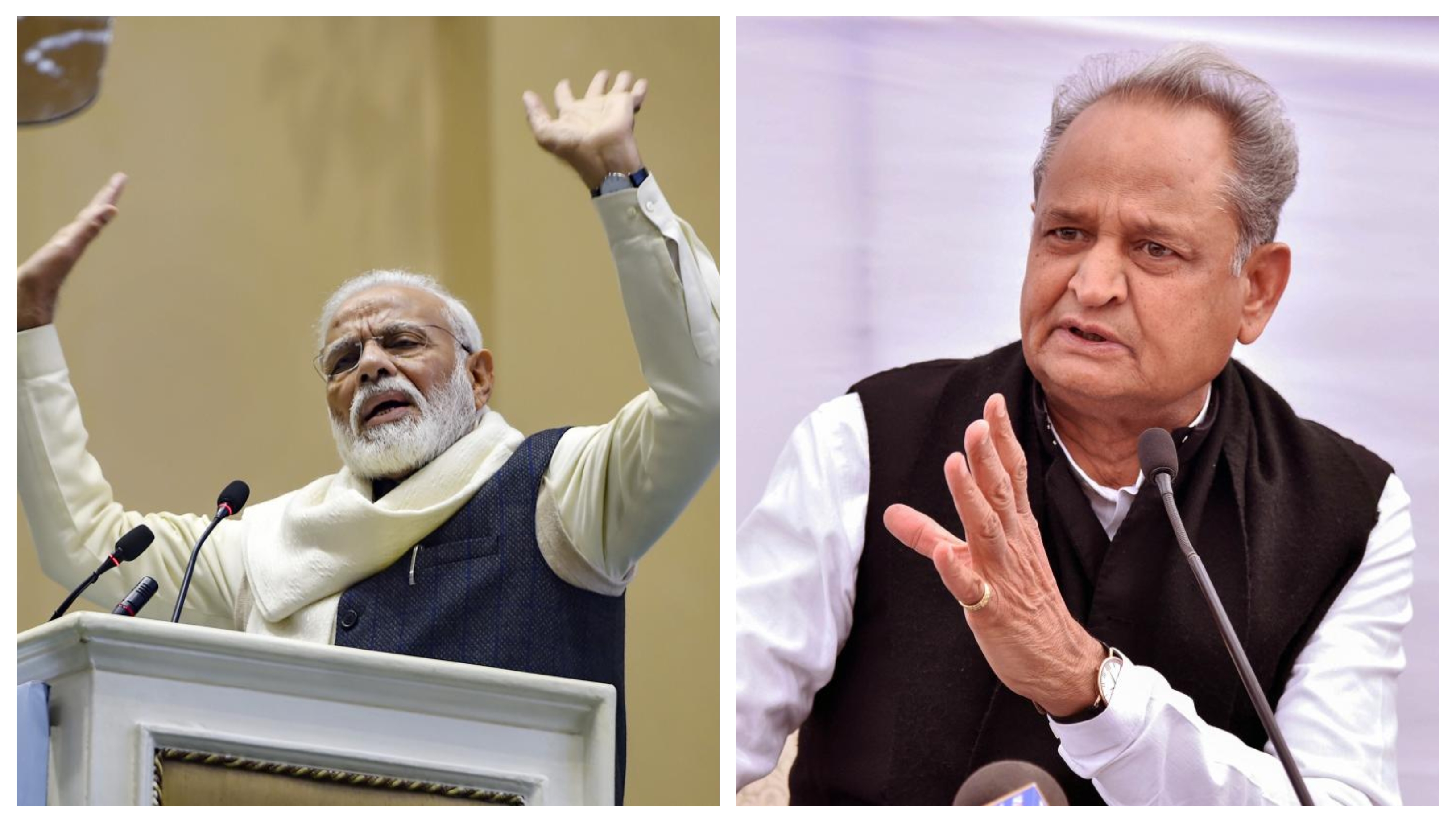Battle of Titans: Modi vs. Gehlot in Rajasthan's Political Arena
Dr.Gopendra Bhatt

From a geopolitical standpoint, the largest state in India, Rajasthan, is heading towards a highly dramatic turn in its political landscape as the upcoming state assembly elections, scheduled for the end of this year, approach. There was a time when the Prime Minister of the country barely paid any attention to state-level assembly elections, and the party in power in each state would independently choose its Chief Minister. However, the political scenario has transformed drastically over the years, with the central leadership of every party exerting significant influence on state politics, even to the extent of determining Chief Ministers.
Prior to the imposition of the Emergency by former Prime Minister Indira Gandhi in 1975, the direction and dynamics of Indian politics took a dramatic shift. However, it is the strength of Indian democracy that the people have taught a strong lesson to every party and its leaders, which indulge in autocratic practices, time and again. Recent events in the country bear testimony to this fact.
With its glorious and eventful history, Rajasthan has set several new milestones in the country's political landscape. For instance, in 1967, for the first time in the history of India, legislators of the opposition in any state travelled to New Delhi to show their strength and conduct a headcount of legislators in front of the President with the then Deputy Prime Minister, Bhairon Singh Shekhawat, among them. However, despite this, Maharaval Lakshman Singh of the United Legislature Front could not form a non-Congress government in the state, and the then Congress Chief Minister, Mohan Lal Sukhadia, managed to retain power in the state by engineering a defection in the party.
In the current political context, Rajasthan finds itself at the cusp of yet another historic moment, as for the first time in India's history, a Prime Minister is set to take charge of the state's assembly elections. As per reliable sources within the BJP, the top leadership has decided that in the four state elections to be held this year, Central Home Minister Amit Shah will lead the campaign in Madhya Pradesh, while JP Nadda, the national president of the party, will take charge in Chhattisgarh. Similarly, B.L. Santosh, the party's National Organizing Secretary, will spearhead the efforts in Telangana. However, as an exception, Prime Minister Narendra Modi will lead the campaign in Rajasthan. This decision has sparked several speculations among political pundits.
In 2014, when Narendra Modi emerged as a leader of the BJP amid the diminishing presence of stalwarts like Lal Krishna Advani and many other prominent figures, the saffron wave engulfed the entire nation, and the BJP became the largest political party in India, both in terms of seats and popularity. Modi's charisma elevated India's status globally, earning the country the stature of the world's guru. In subsequent events leading to the 2019 elections, the BJP's dominance spread far and wide, and they established an unrivaled position in the country's political landscape. However, amidst all this, the Congress, led by Chief Minister Ashok Gehlot, managed to hold its ground and became vocal in its criticism of the policies and alleged unconstitutional steps taken by the Modi government. Gehlot's unabashed remarks made him the most formidable Chief Minister in Rajasthan's political history.
Through his calculated strategy, Prime Minister Modi aims to dismantle the political labyrinth created by Chief Minister Gehlot and render his popular schemes and plans ineffective. He wishes to ensure that the BJP wins all twenty-five seats in the upcoming Lok Sabha elections next year, just as they did in the previous two elections. It remains to be seen how this political battle unfolds and whether Rajasthan's political Titan, Ashok Gehlot, can withstand the full force of the BJP and keep former Chief Minister Vasundhara Raje on the sidelines.
साभार :
© CopyRight Pressnote.in | A Avid Web Solutions Venture.






